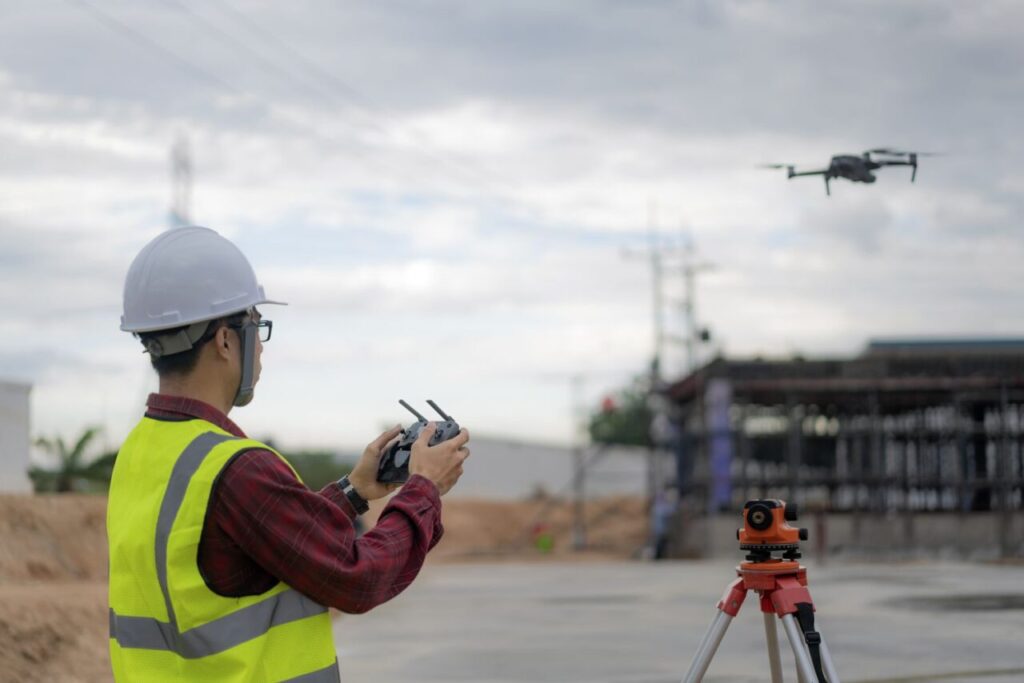Drones have transformed the way we see and interact with the world from above, thanks to a sophisticated blend of sensors and cameras. In this comprehensive guide, we’ll embark on a journey through the intricate world of drone technology, focusing on the pivotal role of cameras and sensors used in drones. These cameras and sensors act as the eyes, ears, and navigational compass of these remarkable flying machines, enabling a wide range of applications and expanding the boundaries of what’s possible from the skies.
Types of Sensors Used in Drones
To truly understand the capabilities of drones, it’s essential to explore the diverse array of sensors they utilize. These sensors provide invaluable data for navigation, control, and information gathering. Here are some of the primary types:
- GPS (Global Positioning System): GPS forms the backbone of drone navigation, allowing for precise positioning, waypoint navigation, and automated return-to-home functions.
- IMU (Inertial Measurement Unit): Comprising accelerometers and gyroscopes, IMUs enable drones to gauge their orientation and motion, ensuring stability during flight.
- Barometers: These sensors measure air pressure, critical for maintaining consistent altitude and preventing collisions with the ground.
- Ultrasonic Sensors: Often situated on the drone’s underside, ultrasonic sensors emit and receive sound waves, aiding in terrain detection and altitude control.
Importance of Sensors in Drone Technology
Understanding the pivotal role of sensors in drone technology is vital. GPS technology, for instance, not only allows drones to follow predefined flight paths but also ensures safe operation within defined airspace. IMUs are crucial for maintaining stability, enabling drones to capture steady footage even in challenging conditions. Barometers and ultrasonic sensors work together to prevent ground collisions and maintain safe flying distances.
Enhancing Imaging Capabilities with Cameras
Beyond navigation and control, drones excel in capturing stunning aerial imagery. Various types of cameras used in drones include:
- High-Resolution Cameras: These cameras offer exceptional image and video quality, often featuring 4K or higher resolution. Equipped with gimbal stabilization, they provide steady and professional-quality shots.
- Thermal Cameras: Thermal imaging cameras detect heat signatures, making them invaluable for search and rescue missions, industrial inspections, and detecting temperature anomalies.
- Infrared Cameras: Infrared sensors capture infrared radiation, revealing temperature variations. They are vital for monitoring wildlife, assessing crop health, and inspecting structures.
- Multispectral Cameras: Multispectral cameras capture data beyond the visible spectrum, enabling detailed analysis in agriculture, environmental monitoring, and more.
Operators can remotely adjust camera settings, ensuring optimal exposure, shutter speed, and focus. These cameras provide an unparalleled perspective for various applications, from photography and cinematography to surveying and mapping.
Types of Drones with Sensors and Cameras
DJI offers a range of enterprise-grade drones designed for various industrial and commercial applications. These drones are equipped with advanced cameras, sensors, and specialized payloads to meet the specific needs of professional users. Here are some notable DJI enterprise drone models:
经纬 M300 RTK

- Designed for versatile industrial applications, including search and rescue, infrastructure inspections, and more.
- Features multiple payload configurations, including the 禅思 H20, 禅思 H20T, and Zenmuse H20 series cameras with various sensors like thermal, zoom, and LIDAR.
- Offers advanced obstacle avoidance systems and AI capabilities for object detection.
- Provides high flight endurance and resistance to adverse weather conditions.
DJI Mavic 3 多光谱版

- DJI Mavic 3 多光谱版 offers two forms of sight for effective aerial surveying.
- It combines an RGB camera and a multispectral camera to provide clear and detailed crop growth analysis.
- Precision and data are essential for agricultural production management, and the DJI Mavic 3 多光谱版 delivers both.
DJI Mavic 3 行业系列

- DJI Mavic 3 Enterprise sets new industry standards for small commercial drones.
- It features a mechanical shutter, a 56× zoom camera, and an RTK module for centimeter-level precision.
- The Mavic 3 Enterprise enhances mission efficiency significantly.
- A thermal version is also available for firefighting, search and rescue, inspections, and night operations.
经纬 M30 系列

- The 经纬 M30 系列 drone is equipped with dual-vision and ToF (Time of Flight) sensors on all six sides, along with a built-in ADS-B receiver, ensuring safety for the aircraft and missions.
- Redundancies, backup systems, and a transmission system in the new RC Plus controller contribute to the drone’s reliability, making it both lightweight and portable.
DJI Matrice 350 RTK
- The Matrice 350 RTK represents an upgraded flagship drone platform, raising industry standards.
- It introduces an all-new video transmission system, enhancing the control experience.
- An improved battery system offers greater efficiency for extended flights.
- The drone features comprehensive safety features for secure operations.
- It offers robust payload and expansion capabilities for versatility.
- The Matrice 350 RTK is designed to inject innovation into various aerial operations.
Conclusion: A World of Possibilities from the Skies
In conclusion, sensors are the backbone of drone technology, enabling precise control and navigation, while various types of cameras open up a world of possibilities for data collection and aerial imaging. With advancements in sensor and camera technology, drones continue to expand their applications across industries, promising innovative solutions and discoveries from the skies. So, join us as we delve into the captivating world of sensors and cameras used in drones, where innovation knows no bounds. Explore the skies with confidence, armed with a deeper understanding of the incredible technology that makes it all possible.





